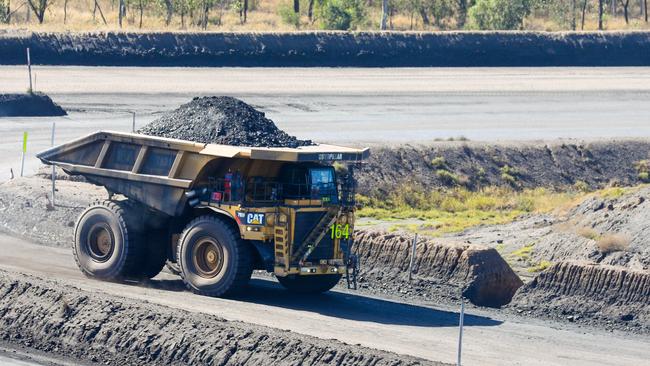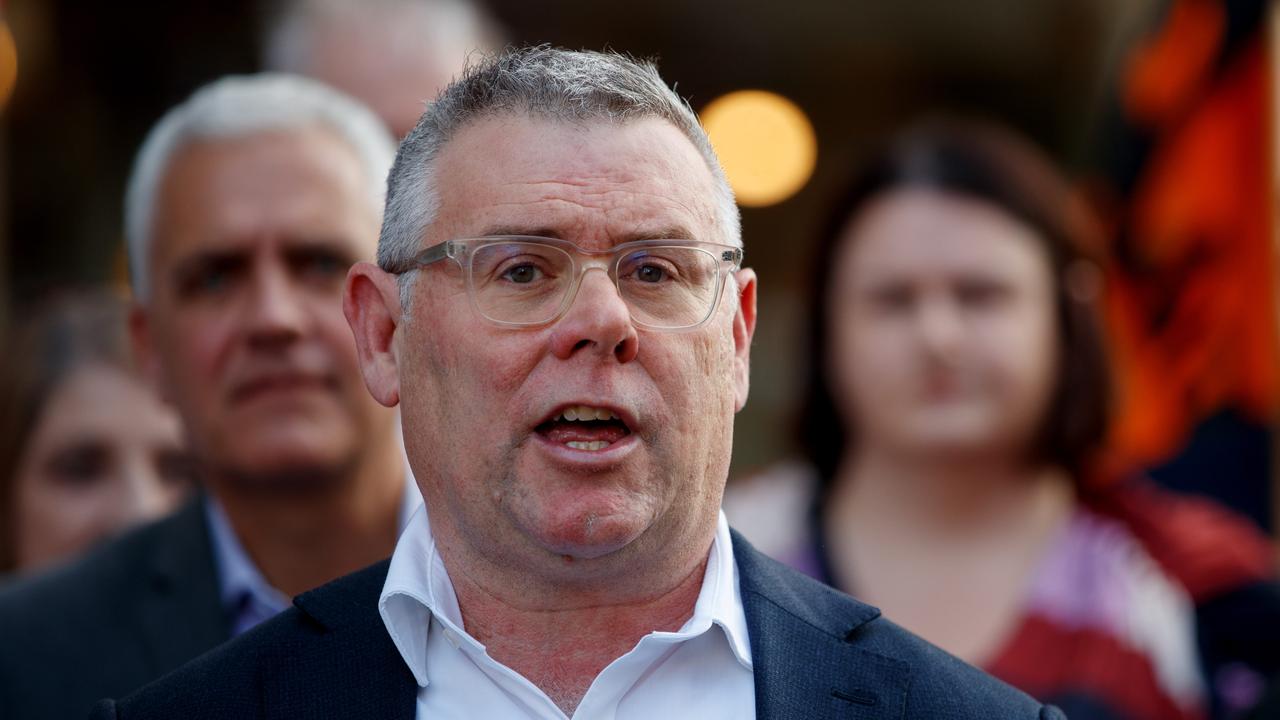Mining giant’s corruption probe targets rehabilitation work on mine sites
BHP has shifted its corruption investigation at its coal business to mine rehabilitation work conducted in Queensland but the Bowen Basin scandal may not be as widespread as first feared.

Business
Don't miss out on the headlines from Business. Followed categories will be added to My News.
BHP has shifted the focus of its investigation into corruption in its coal business to mine rehabilitation work that has taken on new significance under changes to Queensland laws.
The mining giant’s preliminary investigations into corruption allegations involving its BMA coal operations in the Bowen Basin indicate the scandal is not as widespread as first feared.
The investigation continues, but it is understood to have narrowed since the sacking of dozens of contractors at the Saraji mine last month.
All five mines in the BMA stable came under scrutiny after the sackings sparked allegations of widespread corruption over several years and speculation that the financial fallout could top $45m.
There have been no more sackings since late January, when The Australian revealed that 26 contractors had been shown the door at the BMA business owned in partnership with Mitsubishi.
No BMA employees have lost their jobs to date as part of an investigation involving lawyers attached to BHP’s compliance division.
BMA, Australia’s largest producer and supplier of seaborne metallurgical coal, instructed international labour hire firm Hays to remove the contractors at Saraji after a review found they were not required for work at the mine.
A Hays spokesman said the company was aware of the “situation” at BMA, but not directly involved. Hays, one of the biggest labour hire players in Australia, is not accused of any wrongdoing, and said it did not want to make any further comment.
BHP launched its investigation on the back of a BMA manager raising the alarm.
The mining giant is investigating whether contractors were hired from within BMA for non-existent work, or for jobs where the extent of the work was greatly exaggerated.
There has been a shake-up of mine rehabilitation in Queensland under new laws that put a greater onus on businesses such as BMA to plan and carry out work on a progressive basis.
All large mining projects in Queensland are required to progressively rehabilitate disturbed land and must have a progressive rehabilitation and closure plan.
The plans for BMA and other mines must include milestones with completion dates for achieving progressive rehabilitation.
There are claims that one contractor became abusive and threatening when a BHP manager who suspected corruption asked to see invoice and timesheet details.
It is understood the evidence uncovered so far indicates the corruption does not extend to all BMA mines and that any financial fallout will be limited to far less than $45m. The mines have some autonomy in their management and issuing of contracts.
However, BHP is still trying to determine the financial impact of any improper or unwarranted payments, and how the contracts were issued.
Any illegal conduct will be reported to police.
Former and current coal industry employees who claim to have knowledge of wrongdoing allege corruption extends well beyond one contractor and rehabilitation work.
BMA declined to provide an update and has indicated it will not provide additional comment while the corruption allegations are under investigation.
In its only comment so far, a BMA spokesman said the business had “robust measures in place to prevent and detect fraud and misconduct”.
“We encourage anyone to speak up if they have concerns any conduct is inconsistent with our code (anti-corruption guidelines), internal requirements, or conduct that may be illegal or improper,” the spokesman said.
More Coverage
Originally published as Mining giant’s corruption probe targets rehabilitation work on mine sites





